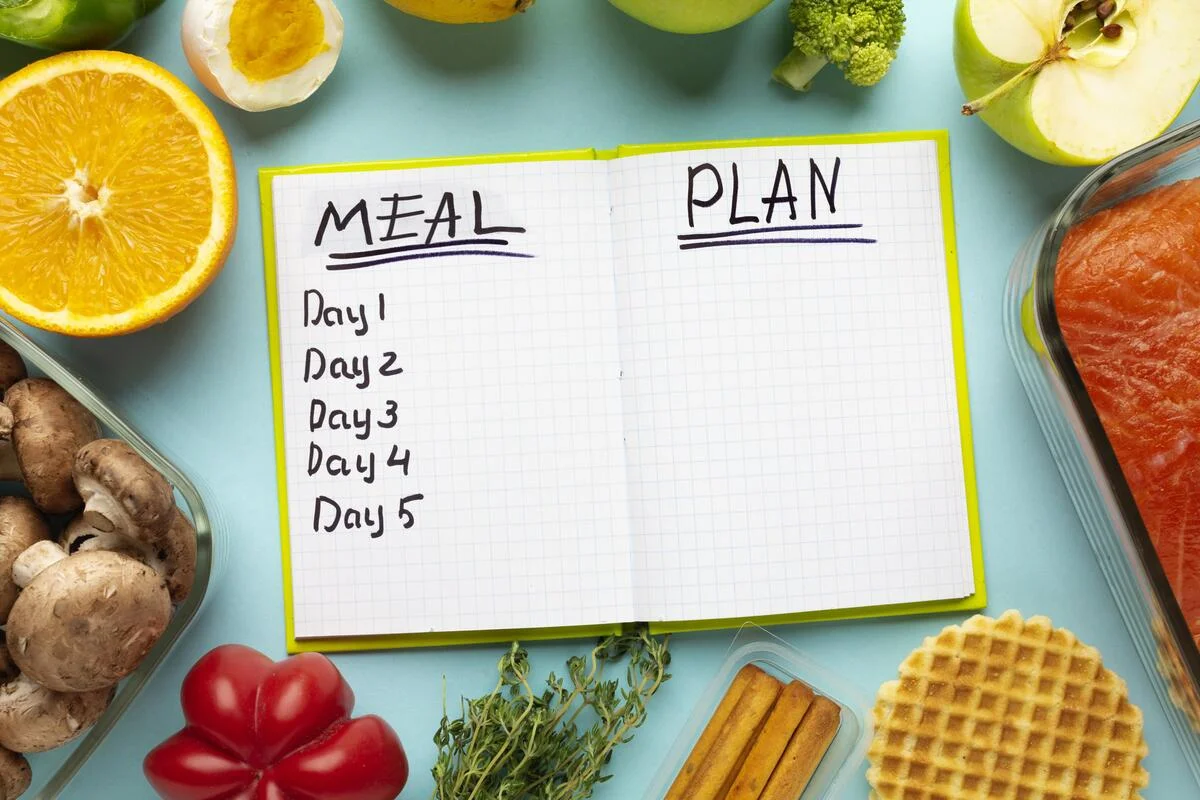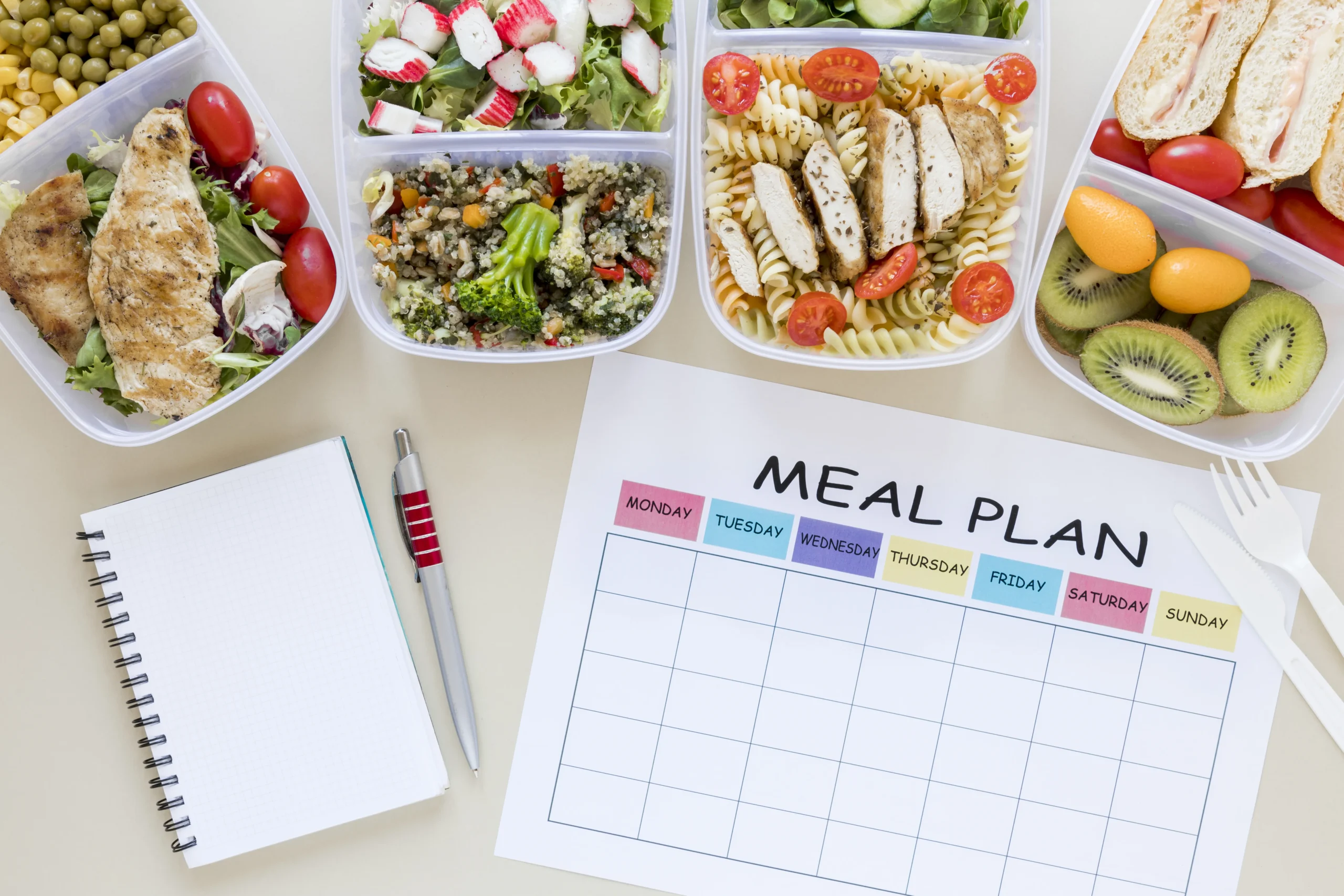A healthy meal plan is the foundation of a well-balanced lifestyle. It helps your body get the nutrients it needs while supporting energy levels, mood, and overall wellness. Instead of chasing fad diets or skipping meals, a brilliant meal plan focuses on whole foods, portion control, and variety. It brings structure to your eating habits, making it easier to maintain a healthier routine without stress.
Whether your goal is weight loss, improved digestion, or simply eating better, a healthy meal plan can guide your choices throughout the day. From breakfast to dinner, each meal becomes an opportunity to fuel your body with intention. With the right plan, you not only eat better, you feel better too.
Why a Healthy Meal Plan Matters
A healthy meal plan is more than a trendy lifestyle choice; it’s a foundation for long-term health. Eating the right foods daily boosts immunity, regulates blood sugar, supports heart health, and improves mental clarity. It also helps reduce cravings and minimizes the risk of chronic diseases.
Creating a sustainable plan gives your body the nutrients it needs without deprivation. You start to feel more energized, sleep better, and enjoy better digestion. A thoughtful plan saves time, money, and guesswork throughout the week.
Core Elements of a Healthy Meal Plan

A successful healthy meal plan begins with a solid foundation built on mindful eating and nutritional balance. It’s not about restricting foods or following strict trends, but rather making daily choices that support your body’s needs and fit your lifestyle. When your meal plan is flexible and based on whole foods, it becomes easier to follow and more effective in the long run.
Key Elements to Focus On in a Healthy Meal Plan
- Balance: Combine carbs, proteins, and healthy fats in every meal.
- Variety: Choose colourful produce, grains, and lean proteins.
- Portion Control: Avoid overeating by measuring appropriate servings.
- Hydration: Aim for 6–8 glasses of water daily for proper digestion.
Healthy Meal Plan for Weight Management
A healthy diet plan is a natural way to manage your weight without crash diets or restrictions. It focuses on whole foods and portion control. Meals should be rich in fibre and protein to help you stay fuller for longer.
Choosing nutrient-dense foods over calorie-dense ones is key. Swap soda for infused water, white bread for whole grain, and processed snacks for fruit or nuts. Don’t skip meals; this can backfire and lead to overeating later.
You don’t need to eliminate your favourite foods. Just eat them in moderation and balance them with healthier options throughout the day.
Daily Healthy Meal Plan Examples

Creating a consistent, healthy meal plan becomes easier when you have a clear structure to follow each day. By combining nourishing ingredients with simple preparation, you can build meals that are satisfying, energizing, and easy to maintain. Below are two sample daily plans that you can adapt based on your preferences, goals, and lifestyle.
Day 1 Healthy Diet Plan
Breakfast: Oatmeal with fresh berries and almonds
Lunch: Grilled chicken salad with mixed greens and vinaigrette
Dinner: Baked salmon with brown rice and steamed broccoli
Snack: Greek yoghurt with a drizzle of honey
Day 2 Healthy Diet Plan
Breakfast: Spinach, banana, and peanut butter smoothie with almond milk
Lunch: Whole wheat wrap filled with turkey, hummus, and mixed veggies
Dinner: Stir-fried tofu served with quinoa and bell peppers
Snack: Apple slices paired with almond butter
These options are flexible and can be adjusted according to dietary preferences.
Smart Meal Planning Tips for Busy People

When life gets busy, sticking to a healthy meal plan can feel overwhelming. However, a few innovative strategies can make the process easier, more efficient, and even enjoyable. By organizing your meals in advance and preparing key ingredients ahead of time, you’ll save time, reduce food waste, and stay consistent with your health goals.
Time-Saving Tips for Effective Meal Planning
- Plan for 3–4 days at a time to keep things manageable
- Batch cook meals and use leftovers for quick lunches or dinners
- Use planning tools like calendars or meal prep apps
- Prep staples such as grains, legumes, and veggies in advance
- Stock up on healthy snacks like boiled eggs, fruits, and nuts for grab-and-go energy
Affordable Healthy Meal Plan on a Budget
An affordable, healthy meal plan is achievable with a bit of planning and smart shopping. Contrary to popular belief, eating well doesn’t require high-end ingredients or pricey superfoods. Focusing on simple, whole foods like lentils, oats, rice, seasonal vegetables, and eggs can significantly cut down costs while still delivering the nutrients your body needs.
Frozen fruits and veggies are also great alternatives; they’re budget-friendly and often just as nutritious as fresh ones. Meal prepping is another money-saving habit that prevents food waste and reduces the temptation to order takeout.
By planning meals around sales, cooking in bulk, and reusing ingredients across different recipes, you can stretch your grocery budget while sticking to your health goals. Preparing meals at home not only saves money but also gives you complete control over what goes into your body.
Common Mistakes in Meal Planning
Even with the best intentions, a healthy meal plan can fall apart if common mistakes aren’t addressed early. Often, people set unrealistic goals, ignore their lifestyle demands, or follow plans that don’t suit their taste preferences. These missteps can lead to frustration, inconsistency, and eventually abandoning the plan altogether. By identifying these issues in advance, you can make adjustments that keep your plan both enjoyable and effective.
Common Pitfalls to Avoid in a Healthy Meal Plan
- Overcomplicating meals with too many ingredients or hard-to-find items
- Forgetting about leftovers or unplanned outings
- Disregarding your food preferences, which leads to boredom or skipping meals
- Skipping snacks or ignoring your body’s hunger cues
- Neglecting water intake, which affects digestion and energy
Benefits of a Long-Term Healthy Meal Plan
Following a healthy meal plan consistently over time brings more than just short-term results it builds a strong foundation for lasting wellness. When your meals are balanced and nutrient-rich, your body functions more efficiently. Digestive health improves, cholesterol levels stabilize, and your skin and hair reflect internal nourishment.
These physical improvements are gradual but noticeable and serve as strong motivation to stay on track. Beyond physical benefits, a long-term meal plan also supports emotional and mental well-being. Stable blood sugar from consistent meals helps regulate mood and focus, while proper hydration and nutrients boost energy naturally.
With time, your relationship with food becomes more positive, leading to healthier habits that last. Consistency, not perfection, is what truly transforms your health.
Customizing Your Healthy Meal Plan
A personalized healthy meal plan is far more effective than following a generic template. Everyone’s body, schedule, and preferences are different, so your meal plan should reflect that. Customizing your plan ensures that it aligns with your goals and lifestyle, making it easier to maintain and more enjoyable in the long run.
Whether you’re trying to lose weight, build muscle, or simply eat more mindfully, tailoring your meals to your unique needs can make all the difference.
Key Factors to Consider When Customizing Your Meal Plan
Your Goals: Focus on fat loss, muscle gain, energy, or overall wellness
Your Routine: Account for how much time you have to cook or prep
Dietary Needs: Include any allergies, intolerances, or lifestyle choices
Activity Level: Adjust portions and nutrients based on daily physical activity
Final Thoughts
A well-structured healthy meal plan isn’t just about eating better; it’s about living better. It provides a sense of routine, supports your physical and mental health, and helps you make intentional food choices every day. When you nourish your body with whole, balanced meals, you naturally feel more energized, focused, and satisfied. Over time, these small daily habits lead to significant, lasting changes.
Remember, you don’t need to be perfect to succeed. Start simple, stay consistent, and adjust your plan as your needs evolve. With the right mindset and a bit of planning, a healthy meal plan can easily become a natural part of your lifestyle, one that supports both your short-term goals and long-term well-being.










